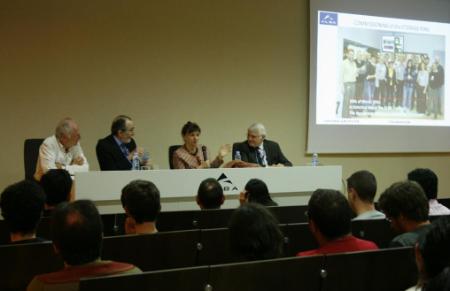Five years of synchrotron light in ALBA
By ALBA Synchrotron facility, Cerdanyola del Valles (Spain)
The oPAC partner ALBA is celebrating its fifth anniversary. On the 16th of March 2011, the electron accelerator of the ALBA Synchrotron near Barcelona (Spain) emitted synchrotron light for the first time.

Eight years after the project's approval, it was possible to produce and see synchrotron light in the accelerators complex of the facility. That moment was the starting point of the ALBA Synchrotron that, one year later, began the first experiments.
The ALBA Synchrotron is celebrating five years of the commissioning of the accelerator. "It was a very exciting moment because we were testing the work done in previous years and, if everything was right, we would be able to start with the experiments very soon", says Francis Pérez, head of the Accelerators' division and former responsible of the Radiofrequency and Diagnostics section at that time.
ALBA has organised a commemorative event with all the staff, including the former responsible of the Accelerators division, Dieter Einfeld. A video has been produced to reflect the great atmosphere of the event. The celebration finished with all scientist and technicians toasting with cava.
"Today is an important day as we celebrate the start-up of the first synchrotron in Spain", says Caterina Biscari, director of the ALBA Synchrotron.
Nowadays, the accelerators' complex of ALBA works about 6,000 hours per year with over 97% availability, and hosts every year more than 1,000 researchers. New improvements have been done like the top-up working mode or a new fast orbit feedback system, both to increase beam stability. ALBA is in operation with seven beamlines (or laboratories) which are available to perform experiments in different scientific areas. At the end of 2016, the eighth beamline, devoted to infrared microspectroscopy, will enter in operation. In 2018 and 2020, two new beamlines will be also ready for experiments. ALBA has been a key partner in the oPAC network, hosting fellows Laura Torino and Michele Carlá.